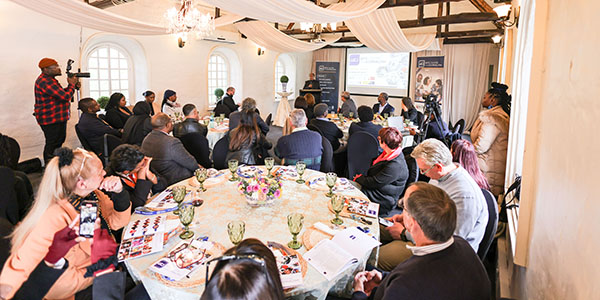Wits Centre for Journalism marks a new era in media research
- Wits University
A new era of journalism research dawned as Wits University inaugurated the formally known Wits Journalism into the Wits Centre for Journalism (WCJ).

The event, held at the Wits Club, marked a significant milestone in the realm of media education. It was attended by prominent figures from academia, media, and civil society.
Since Wits launched a journalism programme over two decades ago, it has established itself as a leading provider of quality post-graduate teaching, thought leadership and practical engagement. Besides teaching and research, its activities range from hosting major international conferences to direct support of investigative journalism, community media, media innovators and others.
Elevated to a distinguished position as a Centre of Excellence within the university, the WCJ has consistently demonstrated an impressive commitment to maintaining high standards of research output. Additionally, the WCJ has achieved notable success in securing external funding, a testament to its impactful contributions. These achievements have been realized through notable initiatives, including the Africa-China reporting project, the Wits Justice Project, and the annual State of the Newsroom report.
Professor Lynn Morris, the Deputy Vice-Chancellor for Research and Innovation at Wits, welcomed guests and commended the WCJ on the work they’ve done over the last two decades.
“The WCJ, moving forward, will have a great focus on research output and an expanded focus on collaborations on the continent through an array of initiatives. The creation of the research centre also opens up the WCJ to new opportunities to become the continent’s most important media hub,” said Morris.
The keynote speaker, Justice Bernard Ngoepe, emphasized the crucial role of responsible education and research within the journalism domain. He highlighted how the media possesses the potential to reshape a nation's historical trajectory, drawing attention to the monumental impact of a single photograph in revealing the brutality of the 1976 Soweto Uprising to the global community.
“So powerful is the media that it must have structural independence. The media can change the course of a country's history. We need to know how to use it," said Ngoepe.

According to Dr Dinesh Balliah, the first director of the WCJ, a big part of the Centre’s success comes from the strong support of its industry partners. These collaborators hold a pivotal role in facilitating the Centre’s initiatives, providing essential backing to up-and-coming journalists through scholarships and valuable employment opportunities.
“The Centre, formally known as Wits Journalism has a 20-something-year history at this institution. That history of ground-breaking teaching, research and innovation through professional and project work, rests on the people who brought it all together,” said Balliah.
She particularly thanked former department heads Professor Anton Harber and Professor Franz Krüger who led Wits Journalism since its inception.

